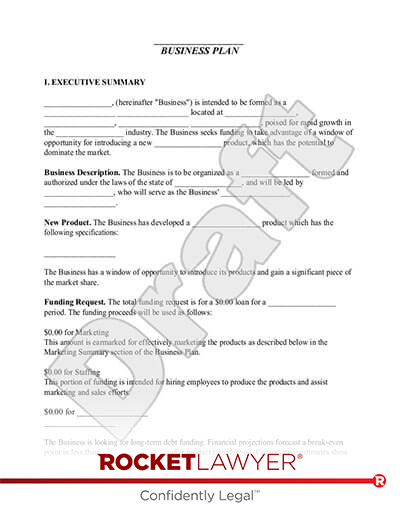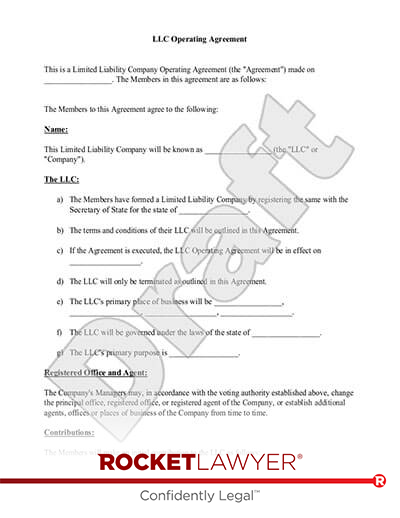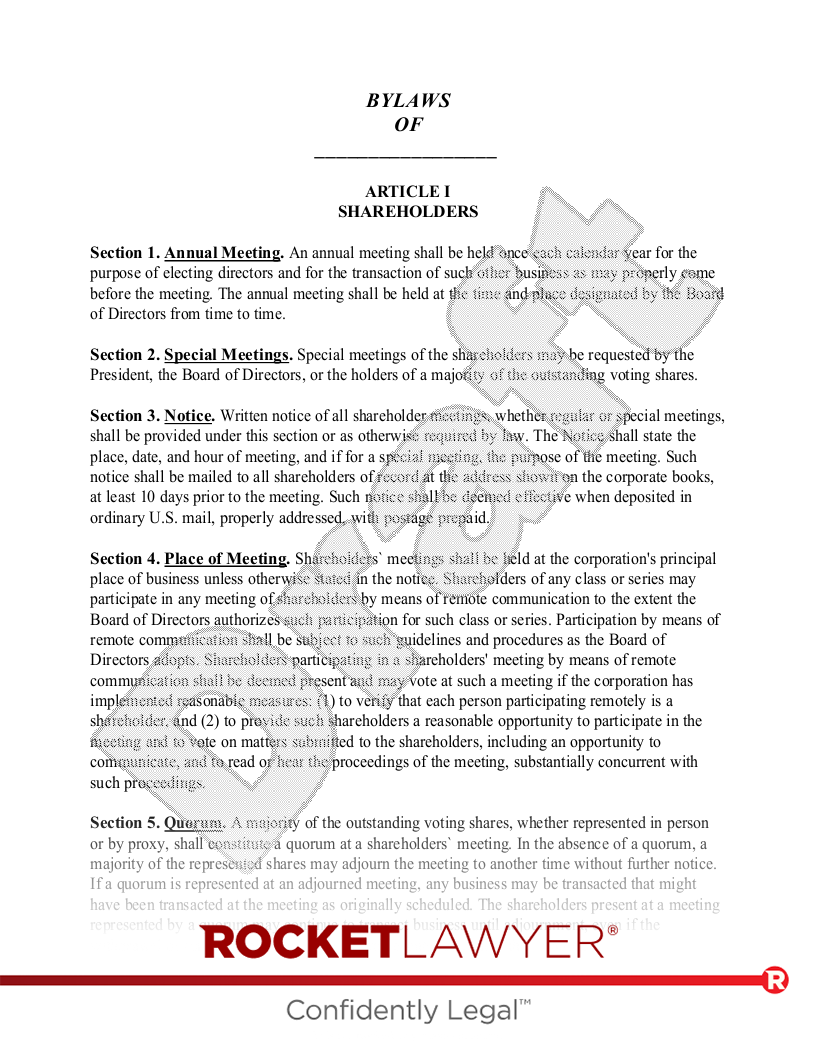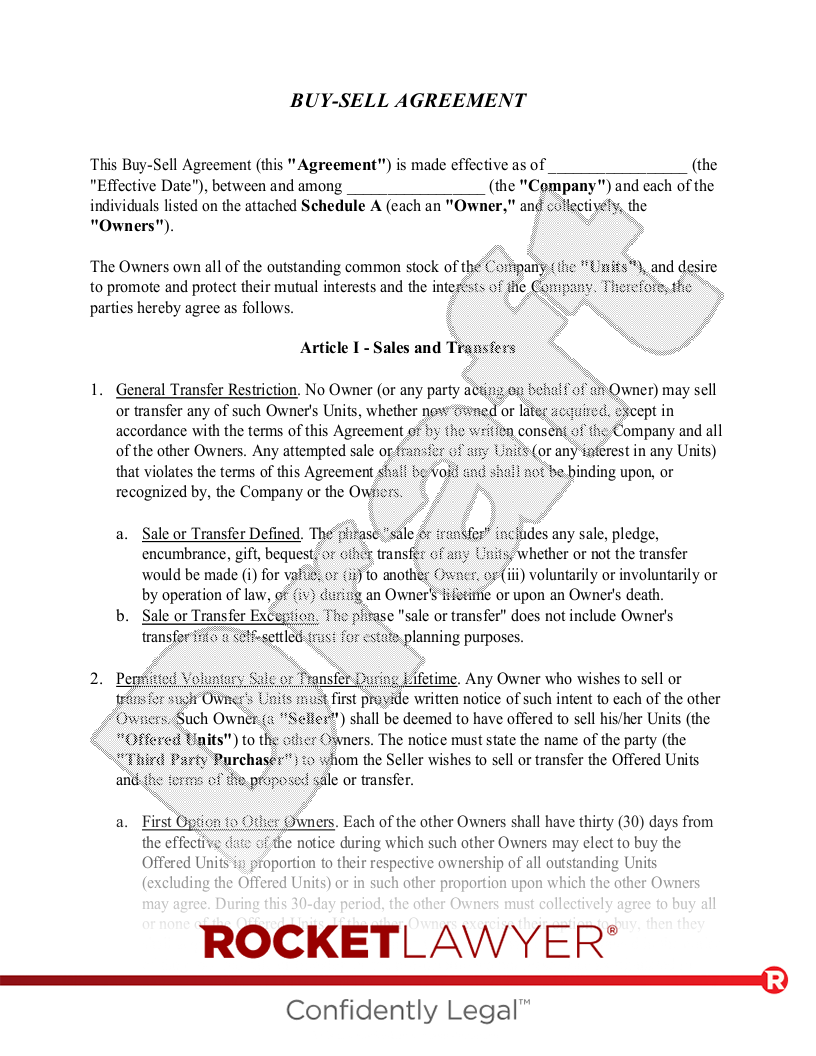Start or update your business
Forming a new business brings many details to consider. We're here to help.
- Peter M.
- Rocket Lawyer member since 2016
Start or update your business FAQs
-
How do I start a business?
Starting a business is simple. First, you need to decide what kind of business you want to start and if you wish to form a legal business entity. Even if you work alone as a sole proprietor or freelancer, there are still benefits to incorporating your business, including liability protection and possible tax advantages. Limited Liability Corporations or LLCs are the most commonly formed business entity. They are easy and affordable to create. If you prefer, you do have the option to form a nonprofit, S-Corp, or C-Corp using our services, as well. We can help you start your business in any state with the locally required paperwork.
-
Should I start a business?
No one can answer that question for you. Running a business is both challenging and rewarding, but not everyone succeeds. If you have a good business idea or have already started your business as a sole proprietor, it makes sense to form a business entity. There are many advantages including funding options, tax advantages and liability protection.
If you are not quite sure if you want to start your own business, you may want to consider the advantages to owning your company, such as:
- Being your own boss and managing your own time
- You have the opportunity to create a business that you love
- You may be able to make more money than you would as an employee
- You can choose who you want to work with
-
How do I fund my new business?
It is best to start off with some money in the bank. Many financial advisors also recommend that you "keep your day job" for a while if you can, so you do not have to depend on the business to pay your personal expenses. You may also be able to qualify for a small business loan to help you with start up costs. Once you can prove that your business could be successful, you can seek funding from investors.
-
How can I make my business successful?
That is the golden question. While a one-size-fits-all answer doesn't exist, there are a few common traits that can help your business succeed. Major topics of consideration include:
- Market demand. It doesn't matter how great your product is if no one wants to buy it. While some smart marketers have been able to "create demand," it is difficult. It is much easier to fulfill a need than to try to make people believe they have one.
- Cash flow. Capital can help your business stay afloat during challenging times, and it can help you to be able to provide your product and services when they are in demand. You'll need savings and/or a line of credit to help you succeed.
- Hard work and energy. Simple "get up and go" is needed to make your business successful. When you run your own business, you'll need to wear many hats, seek your own clients, and manage sales to succeed.
- Support from others. You'll need support from your business partners, employees, family and friends, customers and clients, and your network to help you succeed. If you do not have a network, you may want to start building one.
Ask a lawyer
Legal guides
-
- Legal Essentials for the Self-Employed
- 4 min read
-
- 3 Ways Your Business May Put You at Risk
- 2 min read
-
- When Do You Need a Lawyer?
- 3 min read
-
- Why Business Entities Are Non-Negotiable
- 3 min read
-
- How To Leverage AI When Starting a New Business
-
- Easy Ways To Build Your Brand Using AI
-
- Is It a Bad Idea To Go Into Business With Friends?
-
- Legal Guide to Friends and Family Business Financing
- 2 min read
-
- Legal Ways to Level Up Your Home Business
- 3 min read
-
- A Surprising Way To Save Money on Your Side Hustle
-
- Are You Ready To Go Viral?
-
- Are You Making This Common Startup Mistake?
- 2 min read
-
- Top 5 Riskiest Side Hustles
- 2 min read
-
- Searching for "Cool Business Names"? Rocket Copilot Has You Covered
- 2 min read
-
- From Name to Brand: Crafting a Logo That Captures Your Vision
- 2 min read
-
- How Many Businesses Can You Run Under the Same LLC?
- 2 min read
-
- Getting Unstuck: Common Roadblocks on the Path to Establishing Your Business
- 2 min read
-
- Lemonade Stand Startups: Does Your Kid Need a Permit To Pour?
- 3 min read
-
- How To Get Unblocked When Writing a Business Plan
- 4 min read
-
- Am I a Business if I'm Selling Goods on an App?
- 3 min read
-
- Your Small Business Launch Checklist
- 3 min read
-
- What Are the Benefits of Incorporating in December?
- 3 min read
-
- Minimum Legal Requirements for Starting a Business
- 3 min read
-
- Legal Guide for Starting a Women-Owned Small Business
- 5 min read
-
- How To Start a Restaurant or Catering Business
- 3 min read
-
- Legal Challenges to Starting a Business With Family
- 4 min read
-
- What Are the Legal Risks of a Sole Proprietorship?
- 3 min read
-
- Sole Proprietorship vs. Partnership
- 3 min read
-
- LLC vs. S-Corp
- 4 min read
-
- How to Change Your Business Entity
- 4 min read
-
- A Legal Guide for Startups
- 7 min read
-
- Sole Proprietorship vs. S-Corporation
- 3 min read
-
- How to Get Business Licenses and Permits
- 3 min read
-
- What Is Foreign Entity Registration?
- 2 min read
-
- How to Start and Set up a Sole Proprietorship
- 2 min read
-
- 5 Businesses You Can Run from Home
- 3 min read
-
- Legal Tips for Starting an Online Business
- 2 min read
-
- All About Federal Tax ID Numbers
- 2 min read
-
- How to Start a Business
- 5 min read
-
- How To Start an Online Business
- 4 min read
-
- How Will I Be Liable for My Sole Proprietorship's Debts?
- 2 min read
-
- It Takes a Village: How To Start a Business With a Partner
-
- 5 Reasons To Start an LLC Before Buying an Investment Property
-
- Pros and Cons of Registering an LLC for my Freelancing work
- 2 min read
-
- How To Start a Seasonal Business
- 6 min read
-
- How To Level Up From Contractor to Business Owner
- 3 min read
-
- Small Business Guide to the Corporate Transparency Act
- 3 min read
-
- Top 5 States To Start a Business in 2024
- 4 min read
-
- Alternatives to Traditional Small Business Loans
- 4 min read
-
- 5 Things To Do After Launching Your Business
- 3 min read
-
- Business Ownership After Marriage: Who Owns What?
- 3 min read
-
- Shoot for the Moon: Lessons for Small Business Growth
- 3 min read
-
- Is It Legal To Do Business With Yourself?
- 4 min read
-
- What Entity Type Is Best for My Real Estate Business?
- 4 min read
-
- DBA vs. LLC: What's Right for Your Business?
- 3 min read
-
- Setting up a Business Structure - Tax Considerations
- 4 min read
-
- How Do I Change a Registered Agent?
- 10 min read
-
- How To Get Articles of Organization for Your LLC
- 4 min read
-
- How To Get Funding for a Small Business
- 4 min read
-
- Types of Records to Keep for Business Taxes
- 4 min read
-
- How To File for a DBA
- 2 min read
-
- How Do I Get a Registered Agent in Delaware for My LLC?
- 4 min read
-
- Form an LLC or Incorporate Your Business in 3 Easy Steps
- 4 min read



